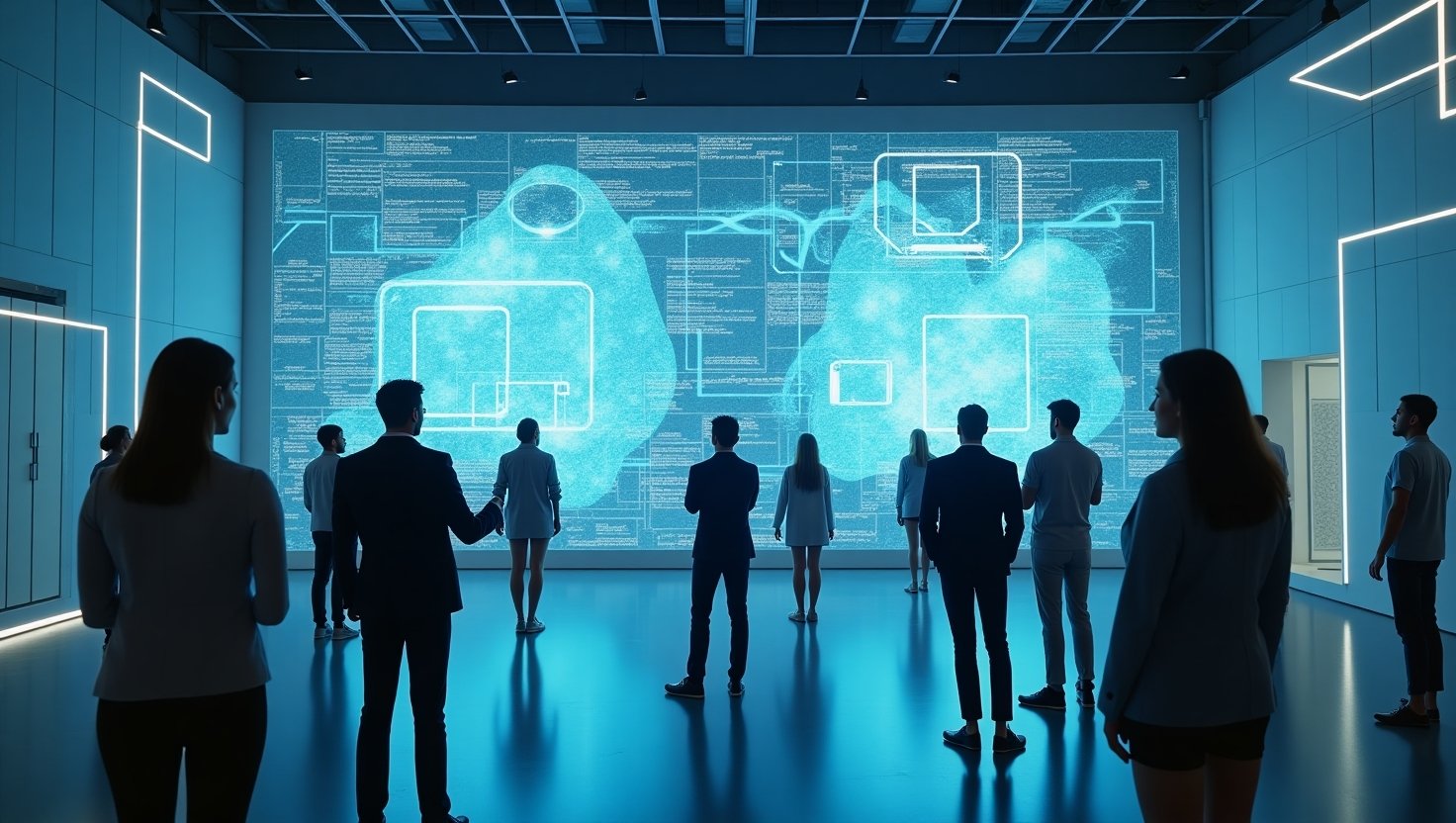Counterintuitive AI: A New Paradigm in Artificial Intelligence
In the fast-paced world of AI development, innovations often defy conventional wisdom, challenging the core principles of traditional computing. One of the most groundbreaking concepts in this realm is Counterintuitive AI. This novel approach is more than just a technological leap; it’s a paradigm shift towards reasoning-native computing, promising to revolutionize how machines process information.
Understanding Counterintuitive AI
Counterintuitive AI marks a transition from the prevalent model of probabilistic computing to what is known as reasoning-native computing. This innovative approach aims to provide AI with the ability to understand, rather than merely mimic, human-like cognition. The startup Counterintuitive, spearheaded by visionaries like Gerard Rego and Syam Appala, is at the forefront of this transformative technology source.
By developing a reasoning chip and software that emphasize memory-driven causal logic, Counterintuitive addresses two major pitfalls in current AI systems:
– The lack of reliable numerical foundations leading to errors and non-determinism;
– The failure to retain memory within decision-making processes.
With over 80 patents pending, the ambition is clear: to forge a new path in AI hardware that moves beyond the probabilistic methods that dominate the industry.
The Twin Traps of Conventional AI
Modern AI systems, despite their remarkable capabilities, are ensnared in what can be termed as the \”AI twin traps\”:
1. Error Prone Precision: While AI can process vast quantities of data with precision, it often lacks the foundational reliability to ensure that this precision is synonymous with truth. This creates an \”invisible wall,\” limiting the potential of AI to handle more complex reasoning tasks reliably.
2. Memory-less Decision Making: Current AI models are not inherently equipped to retain information over time, leading to a gap in their ability to incorporate past experiences into future decisions.
These limitations starkly contrast with human decision-making, where past experiences are routinely integrated into current reasoning processes. Counterintuitive AI’s memory-driven causal logic aims to bridge this gap by enabling AI systems to learn from history, much like ancient mythologies taught lessons of wisdom and folly through parables.
The Role of AI Hardware in Future Innovations
The shift towards Counterintuitive AI also signifies the growing importance of bespoke AI hardware in fostering advancements. With a focus on reasoning-native computing, there is a potential for new hardware architectures to support these complex software frameworks, leading to more efficient and powerful AI systems.
As AI continues to evolve, the demand for innovative hardware solutions that can support these advancements becomes crucial. Similar to how Tesla innovated the electric vehicle industry with its battery technology, future AI systems will likely be driven by specialized chips designed for reasoning and memory retention.
Future Implications and Forecasts
The development of Counterintuitive AI and its associated reasoning chip has far-reaching implications. It could transform industries that require complex decision-making tasks, such as healthcare, where AI could provide more accurate diagnostics by understanding patient history. It could also revolutionize fields like autonomous vehicles or financial analysis, where decision-making timeliness and accuracy are paramount.
Looking forward, if Counterintuitive succeeds in its mission, we could witness a new era in AI development where machines possess not just the ability to calculate, but to comprehend and retain knowledge. It sets a new benchmark for AI systems, moving beyond the binary confines of zeros and ones into a realm where machines think—not probabilistically, but logically.
In conclusion, Counterintuitive AI represents a paradigm shift that challenges the traditional models of artificial intelligence. Its focus on reasoning-native computing could reshape industries and redefine the capabilities of AI systems. As this technology progresses, it will be fascinating to observe how it transforms our interactions with machines and augments human-like reasoning in artificial intelligence (source).










